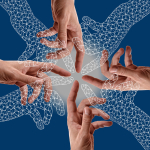Conscious or Unconscious
Different things validate us. Some people value your net worth, for some, it’s your knowledge/degree/institute you’ve graduated from, some value comradery and fun times, for some it’s to be wild, break all the rules and have fun at any cost. I’m sure the list is vast.
In the Awakening Arjuna workshop conducted by TAO Leadership, we dwelled deep into the five Pandava personalities.
Yudhishtra is the judge and the administrator. Yudhishtra anchors stability and certainty.
Bhima is the fighter and the guardian. Bhima brings in a leadership style that is assertive, challenging, and adventurous.
Nakula is the friend and the helper. He experiences the essential quality of being human in every person and is capable of profound empathy, he is a healer and a friend.
Sahadeva is the experimenter and the theoretician. Sahadeva leads the research and development processes and is a Knowledge Creator.
Arjuna is the questioner and the dreamer. The motto of Arjuna is “creative destruction” which brings in a paradigm shift in Leadership.
In the Mahabharata, Draupadi had a keen understanding of all her five husbands. She knew what validated each of them. She didn’t try to change their ways. She used this knowledge to her advantage,
When she was insulted and slighted she chose to share her story with Bheema and her job was done.
She knew that going to Yudhisthra, wouldn’t solve her problem. She was conscious of what validated her and what validated Yudhisthra as well.
Shakuni, also was intelligent and could figure out the Pandava role propensities. Unlike Draupadi, he slyly used this knowledge and invited Yudhisthra to a game of dice. He very well knew; Dharma Raj wouldn’t say no; he wouldn’t disrespect the invitation from his uncle.
Interesting how Draupadi used this constructively and Shakuni used it destructively.
What strikes hard is, that most of us suffer sadness or Dukha because we aren’t aware of our strong role identity, and many other people in our context recognize it and use it to their advantage.
This becomes a vicious cycle. You’re not conscious and you face constant grief. We’ve often heard the saying nobody can cause you grief without your permission.
The point here is, how conscious are we?
Conscious about the way we live, what we eat, the thoughts that cloud us, the way we react to touchy situations.
When you are in a great hurry, to do something, just hold back a few seconds. That’s the first step to moving from compulsives to consciousness.
Once you’re conscious you’re aware. The journey is not to control or change others. It’s to understand your own propensity, and be clued in to know how you feel validated. Once you’re aware you’re in control.
Once you’re in control you’re in Sukha.




